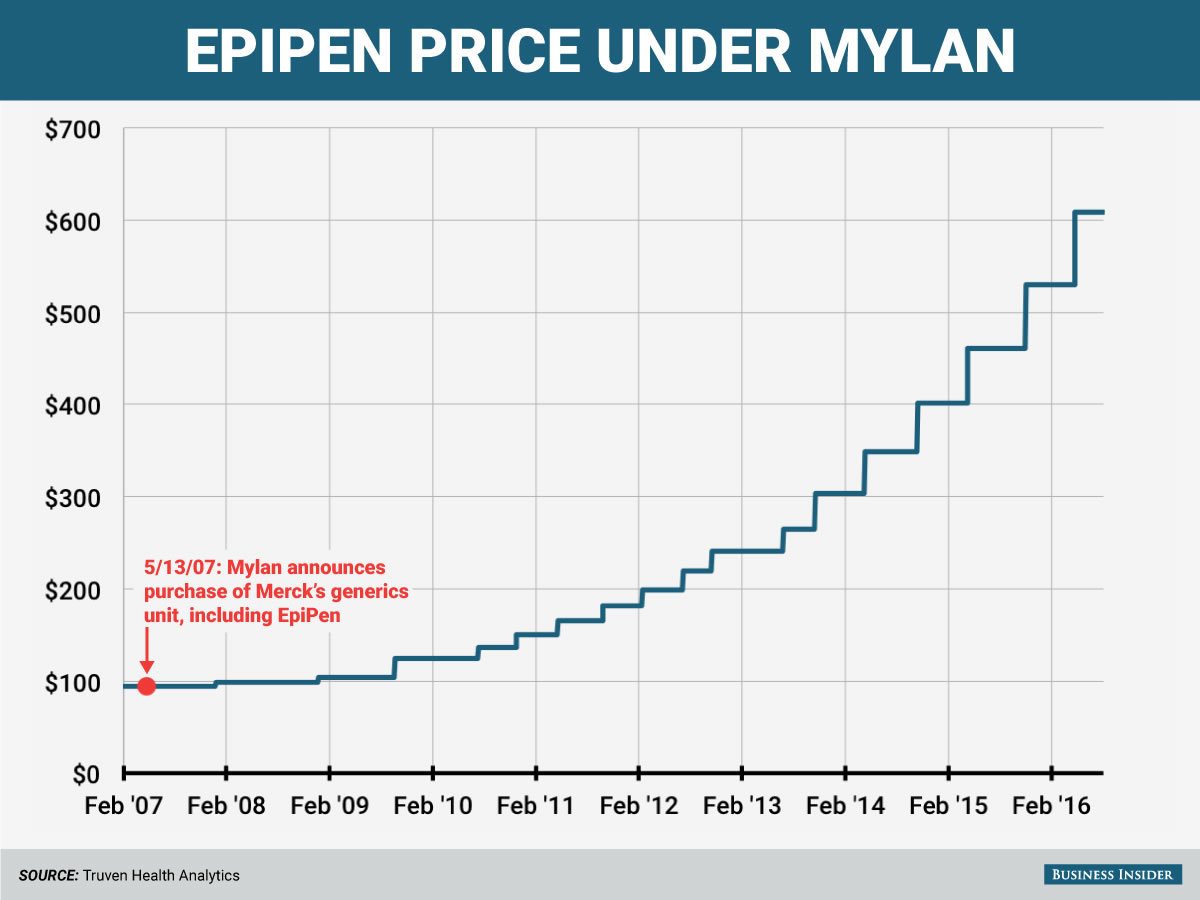
The EpiPen dilemma: No easy solution so far for pricing challenge
If you’ve paid any attention to the news cycle over the last several months you’re likely aware of the controversy which has been surrounding the EpiPen.

Approximately 1-2% of the population is affected by an allergic condition requiring epinephrine. If you or a family member fall within this significant group then you are likely well-aware of the financial impact the rising cost of the EpiPen has on the allergy community. The pens which have been around since the 1970s are epinephrine auto-injector devices.

Patients with food or stinging insect allergies or other conditions that predispose to anaphylactic reactions often prefer to have several epinephrine devices in various locations such as home school family member’s homes and vehicles. This only adds to the expense for the patient making the total cost exponentially higher. While the pen has been around for several decades its cost has continued to rise steadily.
Mylan Pharmaceuticals the company who acquired the EpiPen in 2007 has increased the price of Epinephrine approximately 15% every other quarter. It wasn’t until recently however that widespread public outrage took place over these high costs. Cost of one EpiPen twin pack can be upwards of $600-700 depending on insurance coverage. They are sold in twin packs because many patients suffering anaphylactic reactions require multiple doses of epinephrine to control reactions.
Several factors have played a role in finally bringing this issue to the forefront including the changing healthcare landscape (higher deductible health care plans) political platforms and increased social media use. This is most certainly an issue which needs to be addressed promptly. One reason Mylan has been able to continually increase the cost of this product is the lack of viable competitors in the market. A recent epinephrine auto-injector competitor Auvi-Q was recalled after it was found to have a number of device malfunctions relating to inaccurate dosing.
While other competitors such as Adrenaclick exist often the lack of familiarity and insurance coverage limits their use. In response to the broad criticism Mylan intends to release a half-priced generic version for $300. While other companies are attempting to bring competition to this market the process of FDA approval is often a slow and painful one.

While this may seem responsible there are several cautions that both prescribers and patients should take into account. First the onset of anaphylactic reactions can often be sudden and without warning. An epinephrine auto-injector provides the convenience of quick administration within seconds whereas multi-dose vials would require more time to calculate dose draw up medication and administer.
The difference in time could be life-saving in rare circumstances. Also the predetermined dose of epinephrine in auto-injectors allows patients to administer without the need for calculations thus saving time and removing any chance of error. Pediatric recommended dosages for epinephrine for example are weight-based and would require calculations based on weight in kilograms.
As you can imagine attempting to figure out the correct amount of epinephrine to draw out of vial would potentially delay treatment. For these reasons prescribing of multi-dose vials is not ideal and not usually feasible. As a practicing allergist in the community I see firsthand how important medications are for the control of life-threatening allergic reactions.
I hate that patients have been placed in the unfortunate position of having this degree of financial investment for a medication that only costs a few dollars to produce. The reality is this problem reaches far beyond this brand and affects patients all over the country who are reliant on prescription medications of all varieties. I can only hope that some solution can soon ease the burden and allow patients to receive proper care that is also affordable.
— By Jason Casselman DO
For more information about Dr. Casselman click HERE.


I have been an allergy nurse in Traverse City Michigan for over 20 years. I agree with Dr. Casselman that the price of the EpiPen TwinPak has become a hardship for many patients . Mylan does offered a coupon however on most insurances policies this only reduces the price by $100 still leaving the balance of of $ 300-500 Per Pack. Checking with the family owned pharmacies sometimes is a better value for your money